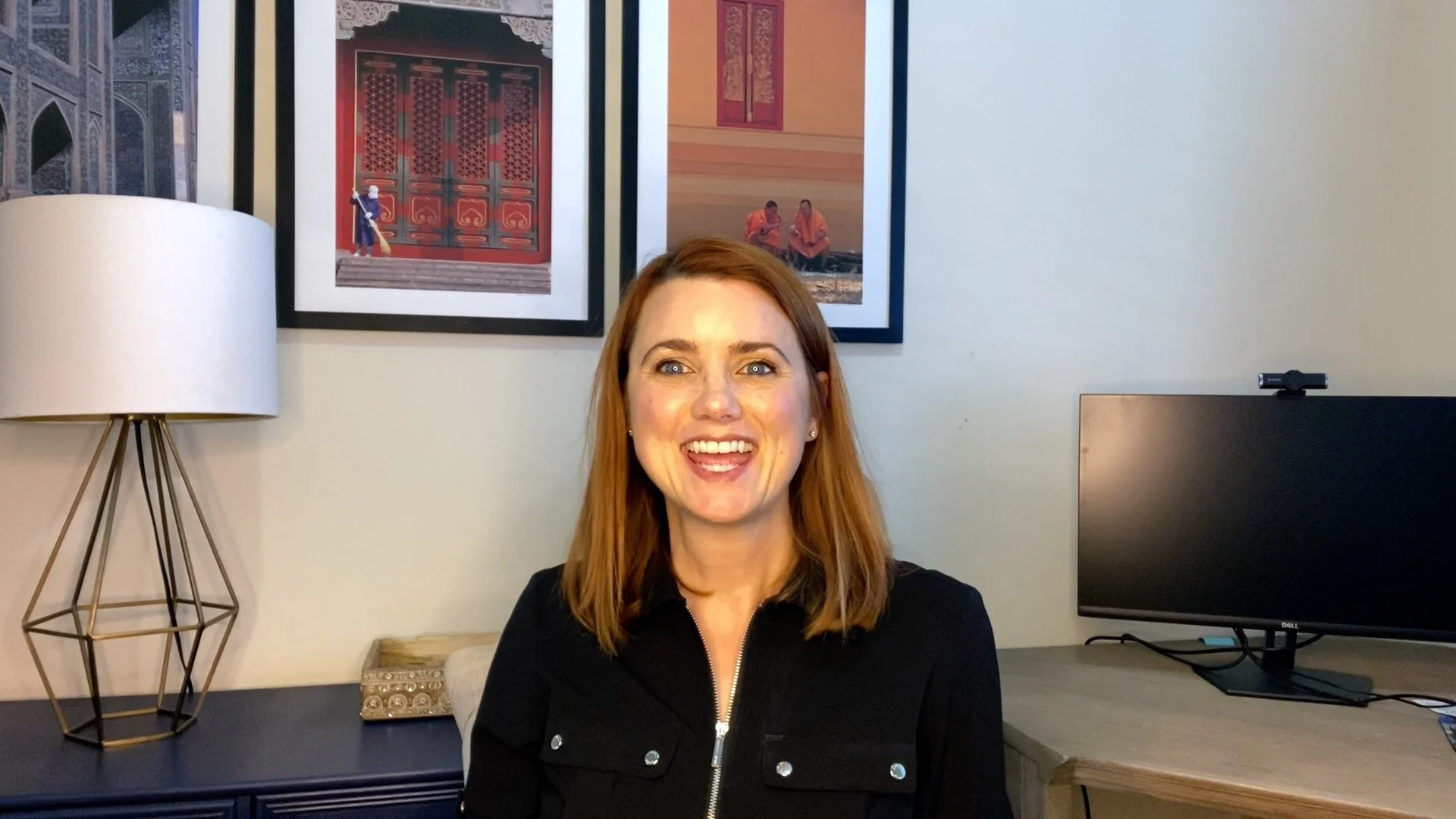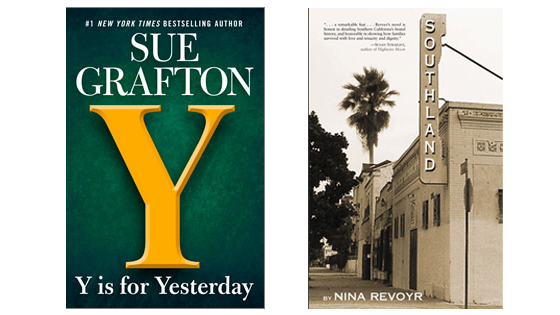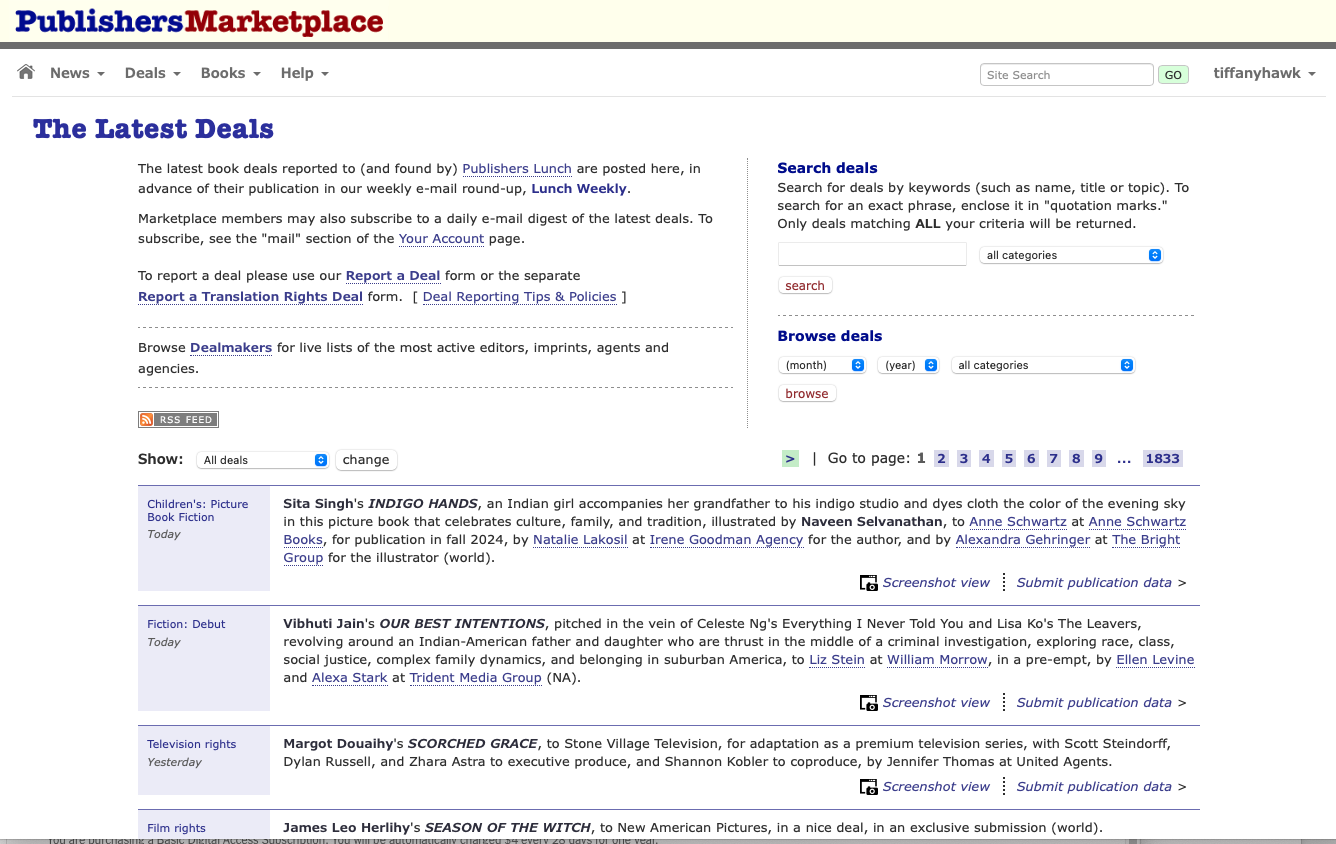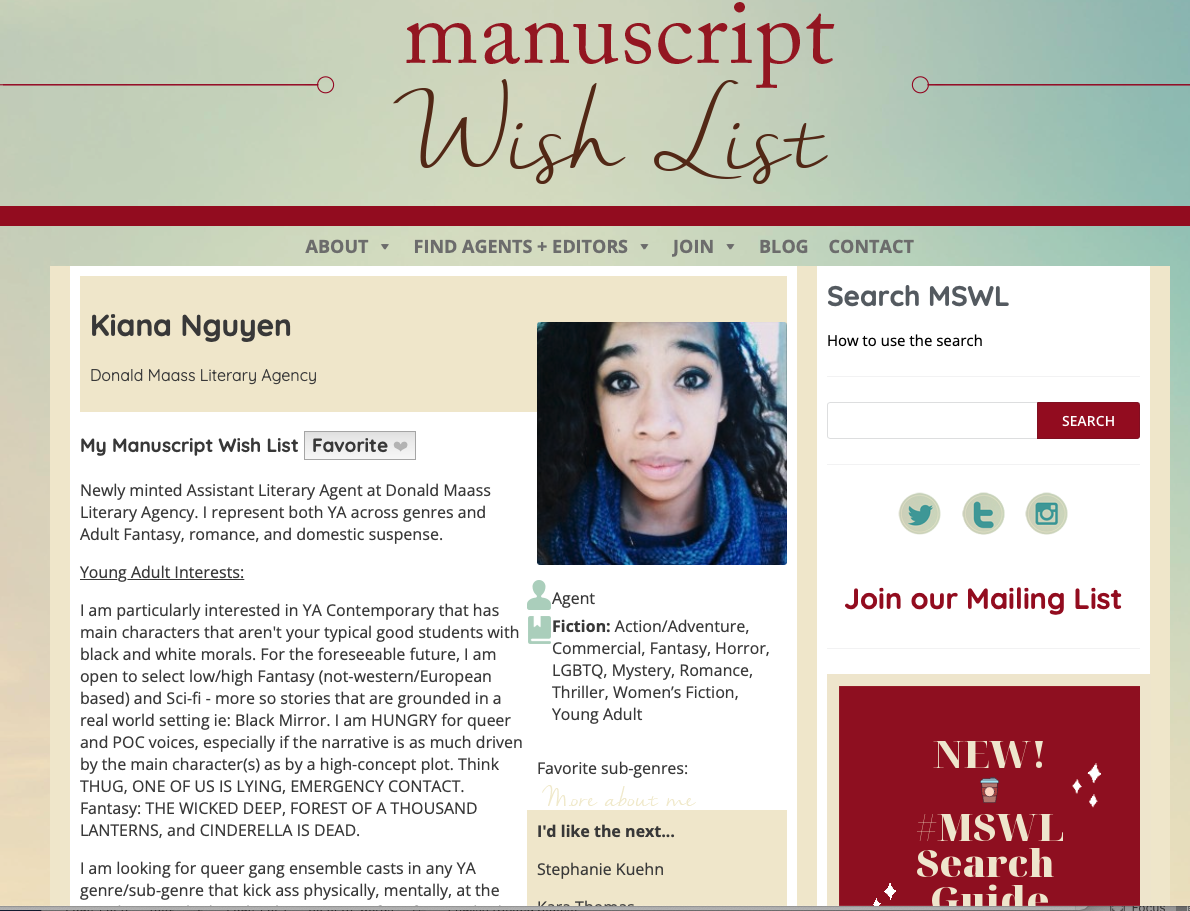How to Find a Literary Agent: The 6-Step Strategy That Works For My Clients
A quick video overview of my step-by-step literary agent strategy with much more detail in the post.
Landing a literary agent will be a challenge, but let’s dramatically improve your odds.
In this post, I’m going to help make that search a little less painful and a lot more effective. If you follow steps, you will improve your chances of attracting an agent who is looking for books like yours (and knows how to sell them).
This is the same method that has helped many of my clients go from being ignored by agents to getting frequent manuscript requests.
I cover a ton in this post, so to help you navigate through it, here’s a quick overview of what I’ll be going over. Under each section, I’ll explain in detail how to tackle that step.
Why You Need a Strategy Before You Query Agents
Getting a Literary Agent is Not Just a Numbers Game.
Usually by the time a writer comes to me for help pitching agents, they’re demoralized and desperate.
They’ve poured their heart and their soul – not to mention months or years of their time – into their book and they’re afraid it’s horrible. They’re ashamed to tell their friends and family that their dream of being an author may be out of reach.
When I ask these writers about their pitching strategy, they usually describe some variation of the shotgun approach.
I get that. We’ve all been told “it’s just a numbers game” or “you’ll have to knock on a lot of doors.” It sounds logical that if you send out enough queries, eventually someone will bite. If only they knew how much greater their odds would be if they would start sending personalized query letters targeted to agents who like and sell books like theirs (more help in my post How to Write a Query Letter That Wows Agents).
Truth is, the shotgun approach rarely works. For anything.
I mean think about this seriously…apart from hunting birds in the woods, would you use that indiscriminate, low-effort tactic in any other area of your life?
Dating and marriage are a great analogy. When you’re in search of love, you’re told you’ll have to “kiss a lot of frogs” before you find The One.
Have you ever dated online? I have. Many years ago, I used Match.com (which served up plenty of frogs but ultimately lead to a happy marriage and a quirky Modern Love story that was my first NY Times byline).
Anyway, so many of the guys on Match would send obvious cut-and-paste jobs. Their messages would say things like, “Hey, I liked what you said in your profile. We have a lot in common. Let’s get together.”
Ummmm, what did you like about my profile? What do we have in common? If you’re sending out a thousand replica emails without even bothering to learn the first thing about me or any of the other women, you’re either way too desperate or way too much of a player. Delete.
Similarly, when I was a magazine editor, I would get blasted with equally generic query letters from freelance writers and publicists. It was clear they knew nothing about our magazine, the sections I edited, or our readers.
How much time do you think I spent considering those queries? About as much time as they spent thinking about what our magazine published. Pretty much none at all.
If they had framed their story in a way that fit with our magazine or would interest our readers, I probably would have given their materials a look, or at the very least would have intended to respond with a polite, personalized no. (I say intended because emails do slip through the cracks. I show you how to deal with that further down in this post.)
And yet, when I first started looking for an agent, I more or less did the same thing. Now, I want to keep you from making the same mistake.
Remember this when you pitch agents: Don’t be creepy internet guy. Be a pro by pitching the right agents, the right way.
Here’s how….
Use This Proven 6-Step Strategy to Find Your Literary Agent
If you follow these steps, you will maximize your efforts by pitching only the agents you know are most likely to be a great match for you and your book.
Photo by Robert Bye
Step 1. Identify how your book fits into the publishing world
This will make the following steps a million times easier and more effective. On the most basic level, before you are ready to write your query or identify target agents, you should know your genre and sub-genre, if applicable.
For example, if your book involves a murder, ask yourself if it’s a thriller, a cozy mystery, noir, or even if it’s historical fiction, or upmarket commercial fiction, or literary fiction, etc.
Although marketing categories can be artificial and frustrating, they can also help you research agents who represent books like yours.
It’ll be even better if you can understand your book on a deeper level. Let’s move past genre and narrow down some of your book’s other characteristics.
For example, what is the tone of your book? Gritty? Inspirational? Philosophical? Funny? Irreverent?
Can you name other authors who share your style or topic?
Where does your book fit on the spectrum between literary and commercial?
Does your book have a unique topic or setting that certain agents might be drawn to?
Getting clear on your book will make it easier to recognize the right agents when you come across them. When you see what books they’ve sold, you can compare them to your own book.
For example, if I were still looking for an agent for Love Me Anyway and I saw someone who represents a lot of dark, funny women’s fiction on the border between literary and commercial, I’d be stoked.
If I found an agent like that who also sells books with travel or international elements, I’d do a few cartwheels (no, I can’t actually do one anymore) and put that person on the top of my list.
Similarly, if I found an agent who represents super serious literary fiction or, on the other end of the spectrum, women’s fiction with cotton-candy happy endings, I wouldn’t expect us to click.
Step 2. Find agents who are looking for books just like yours
Although there are thousands of agents, the vast majority aren’t going to be into (or won’t be good at selling) your kind of book.
You’ll drastically increase your odds with a laser-targeted list of 25-50 to a max of 100 agents who have sold books just like yours.
I’m talking about books that are like yours not just in genre but also in things like tone or theme or style. Nina Revoyr and Sue Grafton have both written bestselling crime novels, but they’re worlds apart in style.
Think about it. You have a certain taste, right? Even when it comes to reading a book (an infinitely smaller investment of time and money than representing one) you carefully limit what makes it onto your bookshelf.
So instead of pitching anyone who vaguely sounds appropriate, I want you to look at agents’ sales records, their webpages, their interviews, their profiles, and find those who very clearly want books exactly like yours.
Let’s say your book is funny and inspirational. In that case, you don’t need to waste time and emotional energy pitching agents whose lists are full of dark, literary, political novels. And you’ll want your query to have a funny and inspirational tone to attract your right people, which inevitably means it’ll turn off the wrong ones.
Use this site to start your rough list of agents
Publisher’s Marketplace: To start your research, I implore you to invest in Publisher’s Marketplace, so you can research the sales records of potential agents. This is not the same thing as Writer’s Market, which you may have used in the past.
FYI-I am not an affiliate and do not get compensation for my recommendation.
Publisher’s Marketplace is the site that publishing industry insiders—agents and editors and publishers and booksellers—use every day.
Yeah, it’s $25 a month, but you can cancel any time, and it’s an investment well worth making. There is simply no better way to research agents.
Plus, you’ll get their news and analysis emailed to you each weekday, which will teach you SO much about the publishing industry. What’s especially fun is seeing all the debut novels that are being sold—proof that people like you do get published!
The drawback to this site is that it doesn’t offer many categories to help you narrow down your search, so sifting through can be a time-consuming drag. It’s the most comprehensive site, but not the most efficient.
Step 3. Refine your list of just-right agents
Once you have a rough list, you need to deepen your research into the agents who have sold books like yours.
I recommend Writer’s Digest and Manuscript Wish List.
Writer’s Digest: Chuck Sambuchino’s blog, the Guide to Literary Agents, constantly introduces new agents, along with agents who are currently looking for submissions. He also posts queries that worked, interviews with authors (including me!), about how they got their agents, and plenty of other publishing gold.
But, it’s not a systematic way to find agents, so I don’t recommend starting there. I’d rather you come back to it after you have an initial list and have developed a better sense of what you’re looking for.
Manuscript Wish List: This started as a Twitter hashtag where agents mentioned ideas they’d love to see. It’s now also a website with very thorough agent listings.
Although it doesn’t have anywhere near the number of agents as the other sites, it’s a fantastic resource, and the agents who have profiles are there for a reason – they want pitches from new writers.
The only downside is that there’s just so much information that it’s not a very efficient place to start.
Like Writer’s Digest, I think MSWL is one of the best places for further research after you have an initial rough list. It will help you learn more about the names you’ve already got and help you add new names once you have a good feel for what you’re looking for.
Listen up – if learning about each agent seems like too much work, remember how much time and effort you’re asking the agent to put in.
If you expect other people to care more about your book than you do, you aren’t going to make it in this business.
Believe me, I know all of this prep work sounds daunting, but you’re up to the challenge.
If you don’t know how to efficiently get that much information on agents, that’s perfectly okay. Get my list of the 107 best agencies in my Epic Guide to Publishers and Literary Agencies. Check it out!
Step 4. Personalize each query letter
It’s enormously helpful when you can tell the agent why you’re pitching them in particular and why you think your book is a good fit for their list.
Not only will you be presenting your book as something they’d like, you’ll be positioning yourself as a professional. You can learn more about how to do this in my post How to Write a Query Letter That Wows Agents.
Here’s a case study for you: My client Robert Kerbeck came to me in frustration after he had sent out dozens of queries for his book and heard absolutely nothing in response.
Ugh. That really is painful.
Understandably, he was feeling rejected and lost. He had worked so hard on his book for years, (I adored it btw), and it was wasting away out there in the email void. We worked together to come up with a highly targeted list, and when he sent out 12 personalized queries to 12 highly-targeted top-notch agents, within two weeks, he got seven requests for his manuscript.
SEVEN! Out of 12. That’s a 58% request rate on the exact same book!
He got an agent, a book deal, and now Penguin Random House is calling RU$E: Lying the American Dream From Hollywood to Wall Street one of their most anticipated books of the year.
Now, a few agents don't think writers should have to personalize their queries. They see it as one more hoop to jump through and don’t want to waste writers’ time. I think that’s big-hearted, and I admire those agents. I also know they're the exception.
As humans, the more any offer is customized to fit our needs, the more likely we are to buy into it. Think about how hard marketers work to research their audience, pinpoint their customers’ needs, and tailor their ads to them. Hello creepy internet ads that follow you from Google to Facebook!
Savvy marketers spend big, big bucks to personalize their ads, even when their target audience of ideal customers includes millions of people.
You don’t have a million prospects. You have at best a few hundred.
The good news about having such a small pool of targets is that you can know exactly who you’re pitching. You’ll know the books each agent has sold, and sometimes you’ll even find loads of information online about their tastes and needs and personalities.
If you can find the agents most likely to respond to your book and figure out how your book fits their needs, you’ll maximize your chances of finding The One.
Plus, you’ll also make the job of writing a query letter much easier.
Step 5. Send query letters to agents in batches
Aim for about 15 queries per batch. One at a time is waaaaaay too slow, and unless someone has already asked for an exclusive, multiple submissions are assumed.
More than 15 and you could be blowing through your list of agents with an ineffective query.
Send the first batch, and if you don’t get any requests for partials within about six weeks, there’s probably something wrong with your query. (That doesn’t mean there’s necessarily anything wrong with your book! See Jim’s experience above.)
If that batch brings in a lot of requests for partials, but then six weeks after sending your pages, you don’t get requests for a full manuscript, then you know the query rocks but the opening chapters need work.
Similarly, if agents generally adore the partial but don’t subsequently fall for the whole book, it’s time to at least consider a bigger revision.
Take any feedback you’ve been given, and try to decide if your sample size is large enough to warrant a change or if it would make sense to keep pitching a while longer. Editors and critique groups can help tremendously, but you’re ultimately going to have to go with your gut on that one.
Once you’re confident the book is ready, go kiss some more frogs with that awesome query!
NOTE: For fiction, you’ll only query once you have a full manuscript. For non-fiction, you’ll query with a book proposal. (Learn all about book proposals here.)
STEP 6. FOLLOW UP!
I hope you get lucky and hear back from agents right away. But, most likely you’re going to need to nudge them.
Do not, DO Not, DO NOT skip this step. Some people will tell you not to do this because it’s pushy and that silence always means no.
I’ll admit silence isn’t the best sign, and there’s a good chance it’s a no, but it definitely doesn’t mean no.
Here’s why you MUST follow up:
I’m pretty sure that if you think about it, you have had experiences in other areas of your life – your job, your social life – where you followed up or extended an invitation for the second time and got a yes.
Or maybe it’s the other way around and when someone has reminded you about something, you’ve responded by saying “Oh, yes, that’s right. I do want to go to that event, sign up for that class, buy that thing, get drinks with that person.”
My favorite follow-up success story.
I know I’ve had many such experiences in my non-publishing life.
As I typed that, it dawned on me that my friend Jennifer convinced me to follow up with my now-husband shortly after we met online! I'm throwing in a shot of us getting married two years later. I was so skinny and he had so much hair!
I was still a magazine editor at that point, and trust me, I let plenty of emails slip through the cracks. When someone politely followed up, my guilt kicked in, and I made it a point to get back to them. Sometimes with a no, but sometimes with a yes.
Here are three examples of agent follow ups that prove silence doesn’t have to mean no.
No one believes me when I tell them an agent might get your reminder and say, “OMG, how did I miss this? Yes, send it immediately!” But it happens.
I once had a client who was feeling dejected after not hearing back from a dream agent. I convinced him to send a polite follow up, and he immediately got this response from a very prestigious agent, a partner at one of the biggest agencies in New York.
(This is so absurdly great that it sounds fake. I promise it’s not.)
“Thanks so much for checking in. Yes, I'd love to read the full manuscript! You beat me to it...You are such a talented writer. I greatly appreciate your following up. I am looking forward to it.”
I swear to god that I copied that straight from his forwarded email and am not making it up. If he hadn’t checked back, he would have continued to assume she hated the book!
Another client of mine followed up a couple of times after her dream agent had liked the full manuscript but wanted to see some revisions before making an offer. She made the revisions, but then heard nothing back from the agent.
Although she assumed the worst, she continued to follow up since she had come so close. Turns out the agent’s mother had died, and she’d stepped away from work to take care of family affairs. When she returned, they signed together.
Another writer I know finally had the nerve to check back six months after an agent had requested her full manuscript. The agent quickly explained that right around the time they’d been corresponding, she went into early labor and then maternity leave. Naturally, the manuscript got lost in the shuffle. The agent requested it again and they’ve been a team ever since.
I don’t want to be overly rosy. If you don’t hear back, there’s a good chance it’s a no, but as I’ve demonstrated, it’s always, always worth a follow up.
Don’t worry about being seen as too pushy.
Listen to me - NO ONE will get upset about receiving a short, polite, appropriately-timed email.
If they somehow decide that a two-sentence email makes you an out-of-line aggressor and they decide to black ball you for it, there is something SERIOUSLY wrong with that person. Luckily, you found out the easy way and aren’t stuck in a toxic relationship with that agent.
Conclusion
This takes WORK! But I promise that if you target agents who are looking for books like yours with a personalized query letter that shows why your book is a good fit for them, you’ll increase your chances dramatically and feel infinitely more confident while querying.
Just rinse and repeat until you find The One.
Go get ‘em!

















